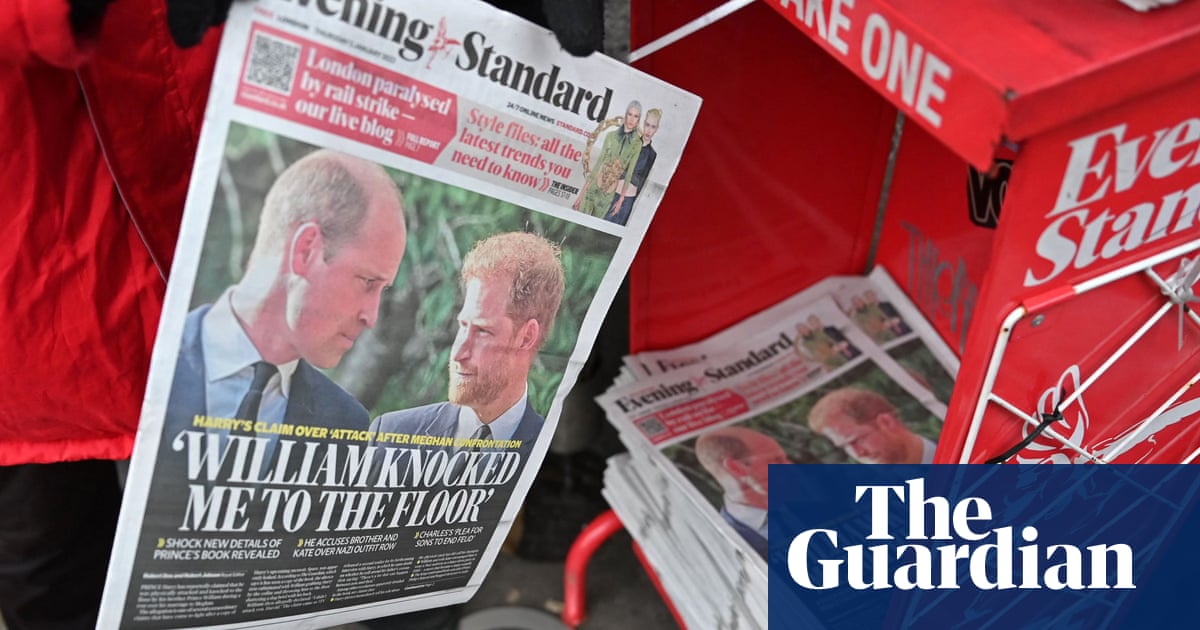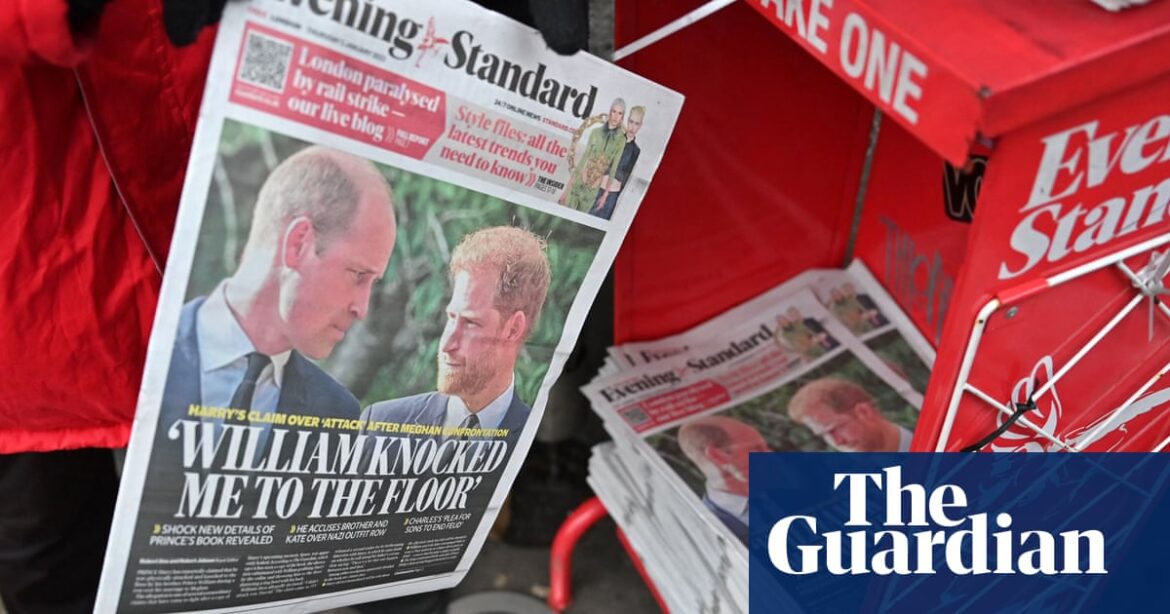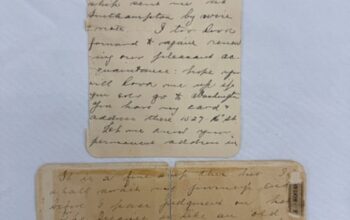
London’s Evening Standard has announced plans to shut its daily newspaper and replace it with a weekly outlet, bringing an end to almost 200 years of publication in the capital.
The newspaper said it has been hit hard by the introduction of wifi on the London Underground, a shortage of commuters owing to the growth of working from home and changing consumer habits.
The Standard lost £84.5m in the past six years, according to its accounts, and is reliant on funding from its part-owner Evgeny Lebedev. Its other shareholders include a bank with close links to the Saudi government. Industry sources suggested Lebedev had been willing to consider selling the outlet in recent years but no buyer was found.
Paul Kanareck, the newspaper’s chair, told staff on Wednesday morning: “The substantial losses accruing from the current operations are not sustainable. Therefore, we plan to consult with our staff and external stakeholders to reshape the business, return to profitability and secure the long-term future of the number one news brand in London.”
He said the company planned to launch “a brand new weekly newspaper later this year and consider options for retaining ES Magazine with reduced frequency”, with the focus shifting to increasing its website audience.
Kanareck said there would be an “impact on staffing”, with journalists bracing themselves for further job losses on top of years of redundancies, while design staff on the print edition are expected to be hit hard. Distributors who hand out the newspaper across London are also likely to be out of work, and billboards outside railway stations advertising the day’s headline will stand empty on most days.
He suggested there would be a change in focus for the weekly outlet: “A proposed new weekly newspaper would replace the daily publication, allowing for more in-depth analysis of the issues that matter to Londoners, and serve them in a new and relevant way by celebrating the best London has to offer, from entertainment guides to lifestyle, sports, culture and news and the drumbeat of life in the world’s greatest city.”
Closing the Evening Standard will mean that for the first time in centuries, Londoners will have no general-interest daily print newspaper. The finance-focused City AM, which was recently saved by the billionaire Matthew Moulding, will continue to publish four days a week and has recently increased its distribution.
Journalists at the Evening Standard said negotiations over potential redundancies at the outlet, which does not have union recognition, are expected to begin on Thursday. One staff member said “shellshocked” employees were dealing with the news by following media tradition: “I think we’re going to the pub.”
Rivals, redundancies and rocketing costs
In its 197-year history the Evening Standard has altered its format, price, content and distribution models. But giving up on producing a daily print newspaper is the biggest change yet.
Twenty years ago the outlet was a paid-for newspaper publishing multiple editions a day, ensuring Londoners had access to the latest news throughout the afternoon. This mattered in an era when there were few other ways to read breaking news. Its proximity to the centres of media and political power meant it was often treated as a national newspaper by political parties, thanks to its readership among opinion formers.
In 2004 it was the first outlet to run the later-debunked claim that the Iraqi leader, Saddam Hussein, could reach the UK with weapons of mass destruction within 45 minutes, setting the tone for much of the rest of the UK media.
It suffered as mobile phones became the norm but the real damage was done when rival publishers engaged in the chaotic “freesheet wars”. This saw rival publishers burn through £70m between 2006 and 2009 on two rival outlets – Rupert Murdoch’s London Paper and Associated Newspapers’ London Lite.
The Evening Standard was sold to the Lebedev family for £1 in 2009 and turned into a freesheet, reviving its finances under the editorship of Geordie Greig. During this era profits boomed, with staff given iPads to celebrate the financial success as advertisers used it as an effective way to reach vast numbers of Londoners.
after newsletter promotion
It enthusiastically backed Boris Johnson for mayor of London, even running a front-page endorsement of the Tory politician under the editorship of Sarah Sands. Johnson later arranged a peerage for Evgeny Lebedev.
In recent years its editors have included the former Conservative chancellor George Osborne and Emily Sheffield, the sister-in-law of the foreign secretary, David Cameron.
Their political stances have sometimes been at odds with an increasingly Labour-voting city – although the outlet did endorse Sadiq Khan in the latest mayoral election.
Although the Evening Standard has built a reasonably large online audience, this has often been achieved by covering national news and celebrity stories rather than core London issues. A sister television station, LondonLive, has also had only limited impact on the capital’s news agenda. There have been repeated rounds of redundancies which affected the outlet’s ability to keep on top of core political news.
Prior to the Covid pandemic, the Evening Standard distributed more than 600,000 copies a day across London. The latest figures show this number is now just 275,000. The cost of paper has rocketed in recent years, with the outlet responding by cutting the numbers of pages in each edition.
Dylan Jones, the current editor, was previously GQ magazine editor and wrote a book about Cameron. Under his leadership the newspaper has abandoned traditional news headlines on its front page and has instead promoted magazine-style features.
Jones told an industry event last month that he “never” reads a print newspaper, reflecting the reality that the readership for physical newspapers has been collapsing for two decades. With 4G mobile phone signal being introduced across the London Underground this summer, the outlook for an increasingly thin and under-resourced print product was poor.
As a result, it has become the second newspaper owned by Lebedev to go online-only, after the closure of the Independent in 2016.
Source: theguardian.com



